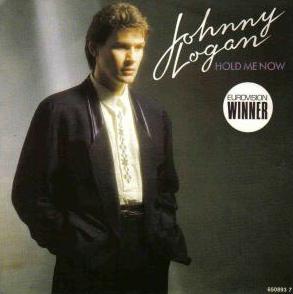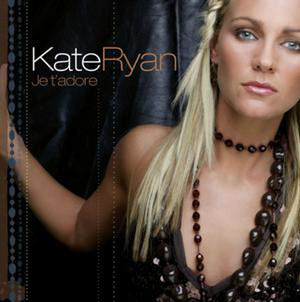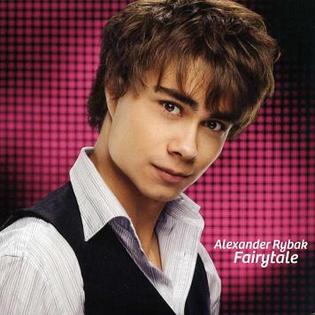
The Eurovision Song Contest 1996 was the 41st edition of the Eurovision Song Contest, held on 18 May 1996 at the Oslo Spektrum in Oslo, Norway. Organised by the European Broadcasting Union (EBU) and host broadcaster Norsk rikskringkasting (NRK) and presented by Ingvild Bryn and Morten Harket, the contest was held in Norway following the country's victory at the 1995 contest with the song "Nocturne" by Secret Garden.

"Love Shine a Light" is a song by British rock band Katrina and the Waves. It represented the United Kingdom at the Eurovision Song Contest in 1997. It was released as a single on 28 April 1997 and was later included on the band's ninth studio album, Walk on Water (1997), serving as the album's lead single.

Ireland has participated in the Eurovision Song Contest 56 times since making its debut at the 1965 contest in Naples, missing only two contests since, in 1983 and 2002. The contest's final is broadcast in Ireland on RTÉ One. Ireland shares a joint record total of seven wins with Sweden, and is the only country to have won three times consecutively. Ireland has finished second four times, while Sweden has done that just once. However, all of Ireland's victories were decided by juries only, in the era before public voting became the norm in 1998.

"La det swinge" is a song recorded by the pop duo Bobbysocks! –Hanne Krogh and Elisabeth Andreassen– with music composed and Norwegian lyrics written by Rolf Løvland. It represented Norway in the Eurovision Song Contest 1985 held in Gothenburg, resulting in the country's first ever win at the contest.

"Hold Me Now" is a song written and recorded by Irish singer-songwriter Johnny Logan. It represented Ireland in the Eurovision Song Contest 1987 held in Brussels, resulting in his second win at the contest, as well as the country's third victory.

"Je t'adore" is a song by Belgian singer Kate Ryan. It was the Belgian entry in the Eurovision Song Contest 2006, performed in English. It was the seventh song to be performed in this contest and the 999th by counting all songs which had ever performed on Eurovision Song Contest. "Je t'adore" was released in 2006 as the lead single from Ryan's third studio album Alive (2006).

"Nocturne" is a song recorded by Irish-Norwegian duo Secret Garden –Fionnuala Sherry and Rolf Løvland– with music composed by Løvland and lyrics written by Petter Skavlan. It represented Norway in the Eurovision Song Contest 1995 held in Dublin, resulting in the country's second win at the contest.

"Diva" is the winning song of the Eurovision Song Contest 1998, performed in Hebrew by Israeli singer Dana International representing Israel. The music was composed by Svika Pick, with lyrics written by Yoav Ginai. The song was produced by Offer Nissim with music arrangements by Alon Levin and included on her fifth album, Free (1999). It was Israel's third winning song in the Eurovision Song Contest, following the consecutive victories of 1978 and 1979. Dana International's win is considered influential in making trans identity mainstream.

"Liefde is een kaartspel" was the Belgian entry in the Eurovision Song Contest 1996, performed in Dutch by Lisa del Bo.

"Invincible" is the name of the 2006 Eurovision Song Contest entry for Sweden, sung by Carola Häggkvist. Being one of the favourites to win, it ended up finishing 5th out of 24.

Eimear Mary Rose Quinn is an Irish singer and composer. She is best known for winning the Eurovision Song Contest 1996 with the song "The Voice". Since then she has toured and performed extensively internationally and has released four albums of her work, the most recent being Ériu, recorded with the RTÉ Concert Orchestra and released in 2020.
Brendan Graham is an Irish songwriter and novelist. Among songs he has written are "Rock 'n' Roll Kids" (1994) and "The Voice" (1996), both of which won the Eurovision Song Contest for Ireland in their respective years, and "You Raise Me Up" (2002), which was an international hit recorded by various artists, including Josh Groban.
Eimear Quinn represented Ireland in the 1996 Eurovision Song Contest with the song "The Voice".

The song "Fairytale" written and performed by Alexander Rybak won the Eurovision Song Contest 2009 for Norway, and is the first single from Rybak's debut album Fairytales.

"Long Live Love" is a song by Australian singer, songwriter and actress Olivia Newton-John, released in 1974. It was the British entrant to the Eurovision Song Contest 1974 in Brighton, United Kingdom.
Melodi Grand Prix, the Norwegian selection for the Eurovision Song Contest, began in 1960, the year of Norway's debut in the contest. It has been held almost every year since.

"Me and My Guitar" is a song performed by Belgian singer-songwriter Tom Dice from his debut album Teardrops. The song was written by British singer-songwriter Ashley Hicklin, writer-producer Jeroen Swinnen and Tom Dice himself. It took first place in the Eurovision Song Contest 2010 Semi-final 1 on 25 May and was the first Belgian act to qualify for the final since the introduction of the semi-finals in Eurovision. In the final Tom Dice scored 143 points and finished 6th.

"Satellite" is a song written by American songwriter Julie Frost, and Danish songwriter John Gordon. It is best known as Germany's winning entry at the Eurovision Song Contest 2010, performed by German singer Lena Meyer-Landrut.

"Everyway That I Can" is a song recorded by Turkish singer Sertab Erener, with music composed by herself and Demir Demirkan, lyrics written by Demirkan, and production and arrangement by Ozan Çolakoğlu. It represented Turkey in the Eurovision Song Contest 2003, held in Riga, winning the contest. It was the first entry from Turkey in the contest that did not feature any Turkish lyrics.

"City Lights" is a song performed by Belgian singer Blanche. The song represented Belgium in the Eurovision Song Contest 2017, and it finished in 4th place in the grand final on 13 May 2017. The song was intended to be released as a digital download on 8 March 2017 through PIAS Belgium, but leaked through Spotify the night before.

















